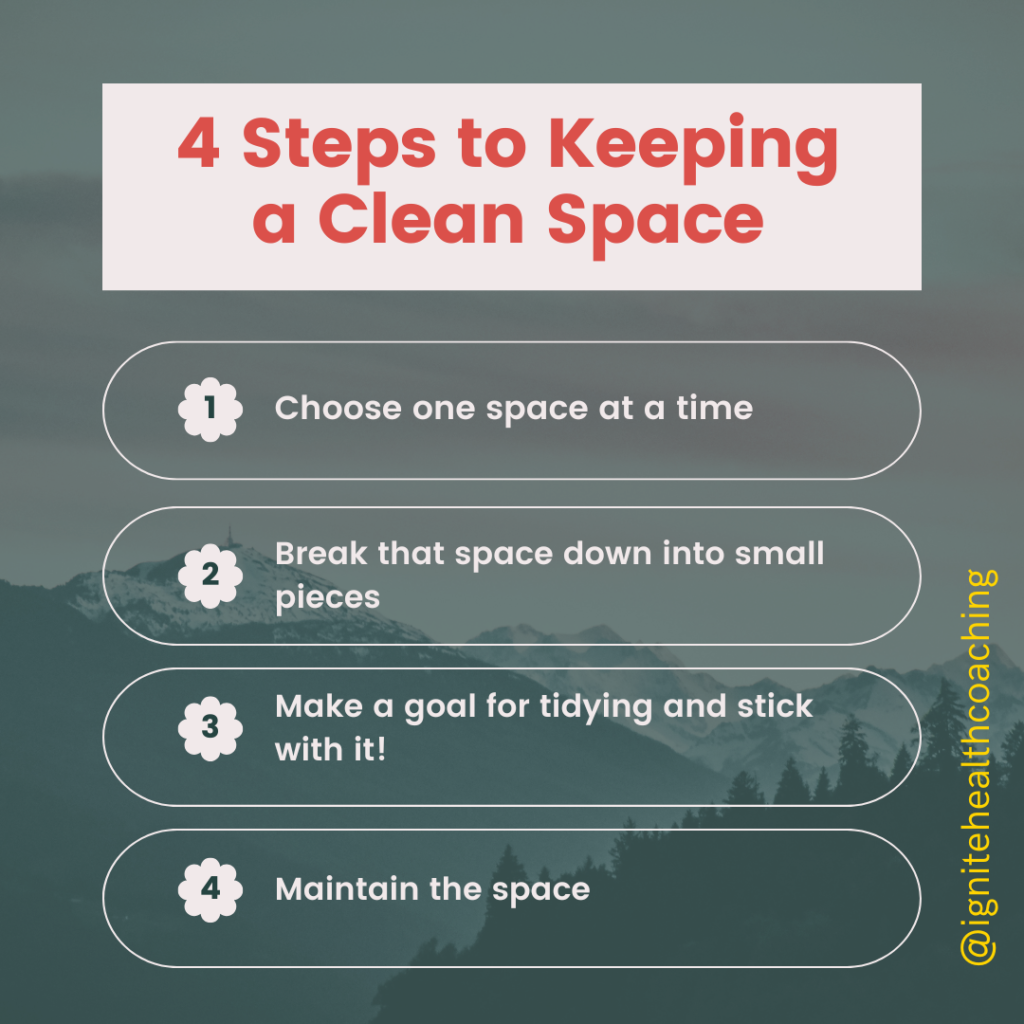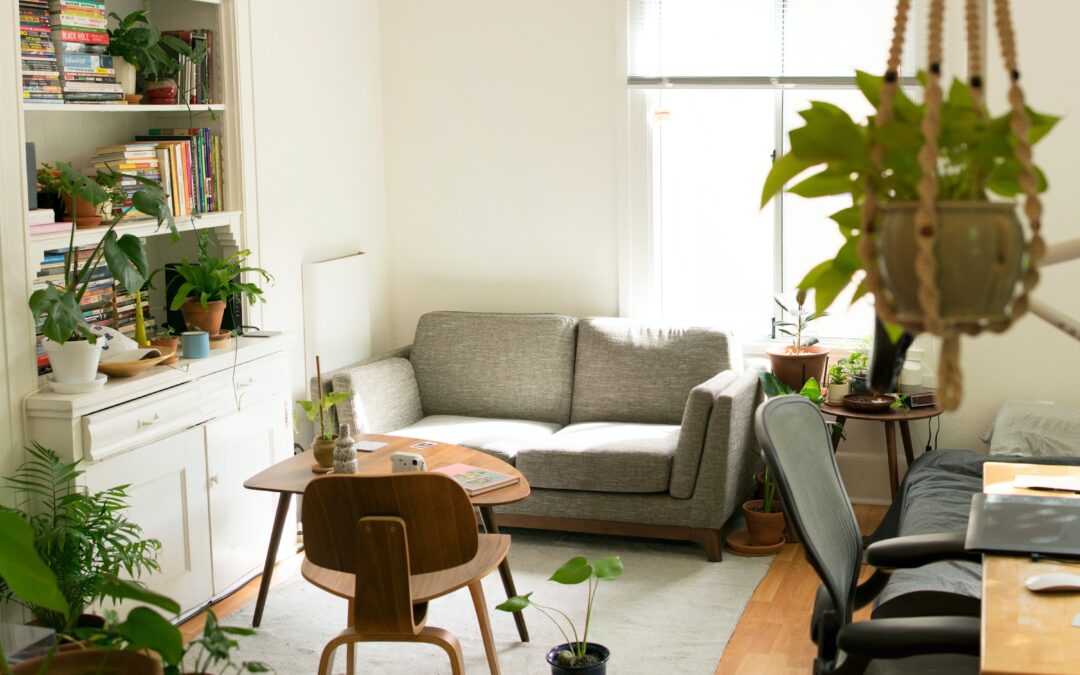Think about the spaces you occupy most. Your home (and even more specific spaces like your bedroom, living room or kitchen), desk or vehicle. What do they look like right now? How does this connect to your mental health status?
If you take this theory and apply it to the life of someone who is depressed and/or anxious, you can expect that their space will reflect this. For someone who is depressed, it’s not uncommon to have a dark and disorganized space. For anxious individuals, both ends of the spectrum are possible; Having a chaotic space that reflects the busy mind, or an obsessively clean space due to a person cleaning while anxious or being concerned with how others perceive them and their space.
An awareness of how your depression and anxiety may show up in your physical space can be key to early identification of potential downward spirals. But what is even more crucial is reversing this concept and asking “what impact does my environment have on my state of mind?”
In my practice, I encourage people to take control of their own mental health and taking care of your space is one way that you can do this. I know it can feel overwhelming, especially if your space is especially disastrous at the moment. Take a breath. It doesn’t all have to be done at once. Let’s make a plan to get you back on track.

- One Space at a Time
It can be overwhelming to think about tidying up everything at once. Instead of seeing every space, consider the one that you are in the most or the one you think may have the most impact. It can be a space in your home, your office or even your vehicle. - Break It Down
Now take that space and break it down even further. Go into the space you want to tidy and have a look around. Identify some hot spots that could use some attention. For example, in the bedroom, it could be the floor space (and even breaking that into smaller areas if needed!), surfaces (tops of dressers, bedside tables etc), closets, chairs and so on. Grab a pen and paper and write down each zone. - Make a Goal and Schedule It
Once you’ve broken down your space into zones, you can make a plan on how you want to tackle each zone. Meet yourself where you’re at. Remember, it doesn’t have to all be done today.
Goals can be zone related (i.e. you will finish the zone on the date scheduled) or time-dependent (i.e. you will allot a certain amount of time to a specific zone)
For example, if cleaning your closet is on your list, you could plan to spend 5 minutes each day tidying the closet. In that case, see if you can break the zone down into even smaller goals that could be completed in 5 minutes (like hanging up as many clothes on hangers as possible, or choosing a few items to donate). Alternatively, you may set aside a weekend afternoon to tackle the whole closet.
There is no right or wrong way to do this, so go with your energy and find goals that feel achievable to you right now. If you need help setting goals, check out my post on writing SMART-ER goals for mental health. - Maintain the Space
Tidying your space is not an instant cure for your mental state, so it’s important to consider how you can prevent your space from going back to its previous state.
My favourite strategies for maintenance are:
a) Resetting the Space – when you’re finished using a space, take a minute or two to put things back where they belong. For example, put dirty clothes in the laundry hamper, or put your dishes in the dishwasher.
b) 2 Minutes Drop Zone – identify the spaces that commonly collect stuff. You know what I’m talking about…that countertop by the door, the chair in your bedroom. It’s your dumping grounds. Identify these spots in your home. Each day, set a timer for 2 minutes (yes! Only two!) and do a fully focused tidying of this area. It doesn’t need to be completely clean when you’re done, but if you commit to two minutes each day, this space will be more effectively managed before you know it!
Overall, I know it can be really hard to keep up with these things when you’re not feeling like yourself. I’ve been there. My space was a nightmare! Taking care of your environment is a method of self-care and self-respect that every human (including you!) deserves. With small consistent steps, you’ll be able to make progress in creating and maintaining a space that makes you feel better every day!
Having a health coach can help to keep you on track as you build the habits that keep you mentally well. If this sounds like the support and accountability you need, please get in touch! Click here to schedule your free, no-obligation consultation to find out if I fit into your healing journey.


Recent Comments